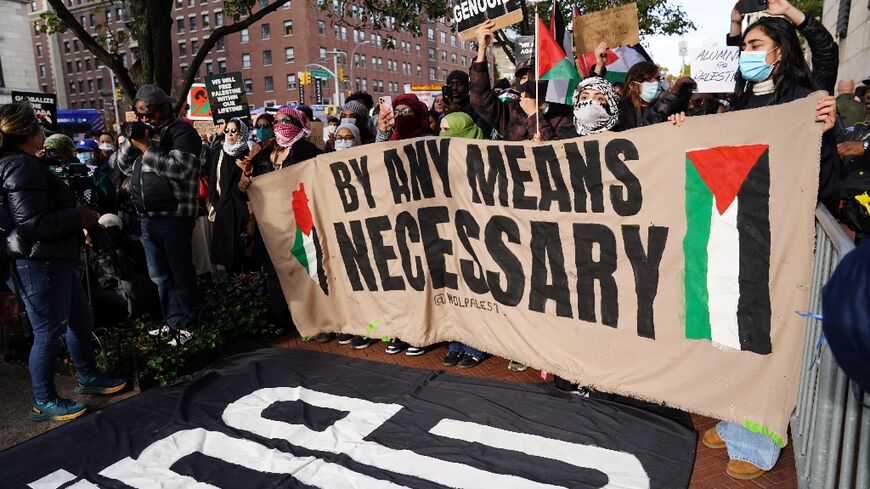Leaders of Columbia University defended the prestigious New York school's efforts to combat anti-Semitism on campus at a fiery congressional hearing on Wednesday.
The Columbia administrators were the latest school leaders hauled before Congress for questioning about protests fueled by the Israel-Hamas conflict roiling US college campuses.
University of Pennsylvania president Liz Magill resigned in December in the wake of her responses to a congressional committee and Harvard University's Claudine Gay stepped down in January.
Columbia president Nemat Shafik and board of trustees members were grilled by members of the Republican-led House Committee on Education and the Workforce about their response to anti-Semitism on campus.
Republican lawmaker Virginia Foxx, the committee chair, accused Columbia of being a "hotbed of anti-Semitism and hate" and said "anti-Semitism must have no safe harbor in American universities."
"Anti-Semitism has no place on our campus and I am personally committed to doing everything I can to confront it directly," Shafik responded.
"Columbia strives to be a community free of discrimination and hate in all its forms and we condemn the anti-Semitism that is so pervasive today," he added.
The Columbia president said the school has suspended 15 students and taken disciplinary action against several faculty members.
"We have 37,000 students and I think the numbers that we are talking about who are crossing these lines are, you know, a very, very small number," she said.
The hearing came after the University of Southern California canceled plans this week for a May 10 graduation speech by a Muslim student over what it said were safety concerns.
Pro-Israel groups had criticized the selection of Asna Tabassum as the class valedictorian, accusing her of using "anti-Semitic and anti-Zionist rhetoric."
Tabassum criticized the decision, which she said was the result of the university "succumbing to a campaign of hate meant to silence my voice."
The Hamas attack that started the war on October 7 resulted in the deaths of 1,170 people, mostly civilians, according to Israeli figures.
Palestinian militants also seized about 250 Israeli and foreign hostages and estimates 129 remain in Gaza, including 34 who are presumed dead.
Israel's retaliatory offensive has killed at least 33,899 people in Gaza, mostly women and children, according to the health ministry in the Hamas-run territory.
The fallout from the conflict has been felt around the world, and is particularly intense on US college campuses, where both pro-Israel and pro-Palestinian groups say they are being victimized and silenced.


